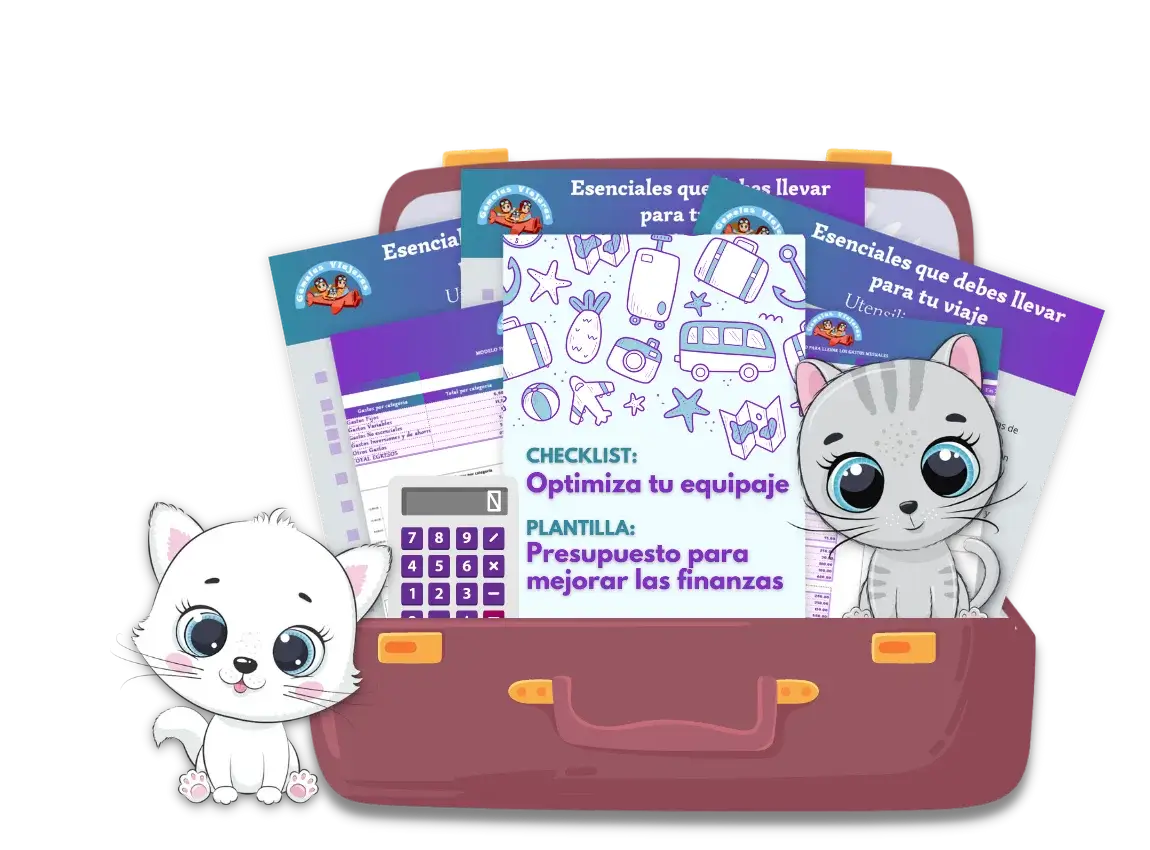There is a general perception that the danger of Covid-19 has been averted. Now, with about 17 vaccines available (and more in development), many people want to resume their lives, just as they were before the pandemic.
One of the sectors that is reviving rapidly is tourism. After a year and a half of losses, this sector has been among the hardest hit by this health event and wants, at all costs, to compensate for the damage.
The coronavirus hasn’t gone away (and probably never will). However, we must not neglect other potential health risks when we travel.
Whatever your reason for traveling internationally, be prepared when it comes to your health, and the health of others, before, during and after the trip.
1. Before you leave

Take steps to prepare for abroad and anticipate any problems that may arise.
Know your state of health before making travel plans. When you’re sick, you can pass on illness to other people. Postpone your trip and stay home when you’re sick.
Check your destination for country-specific health tips. Depending on where you’re going and what you’ll do, you may need vaccinations or medications before you leave.
Make an appointment with your doctor at least one month before you leave. Work with your doctor to assess your health and the health of those planning to travel with you.
2. Consider travel insurance

Trip cancellation insurance. Trip cancellation insurance covers your financial investment in your trip.
Travel medical insurance. If your health insurance policy doesn’t cover you while traveling (not everyone does, it’s best to check ahead), consider buying additional insurance. Otherwise, if you need to go to a hospital or clinic abroad, you’ll probably be asked to pay out of pocket for any services.
Medical evacuation insurance. If you get sick or injured in remote areas or in countries where medical care doesn’t meet minimum standards, medical evacuation insurance will cover the cost of transportation you to a place where you can receive high-quality care.
3. Avoid aisle seats on planes
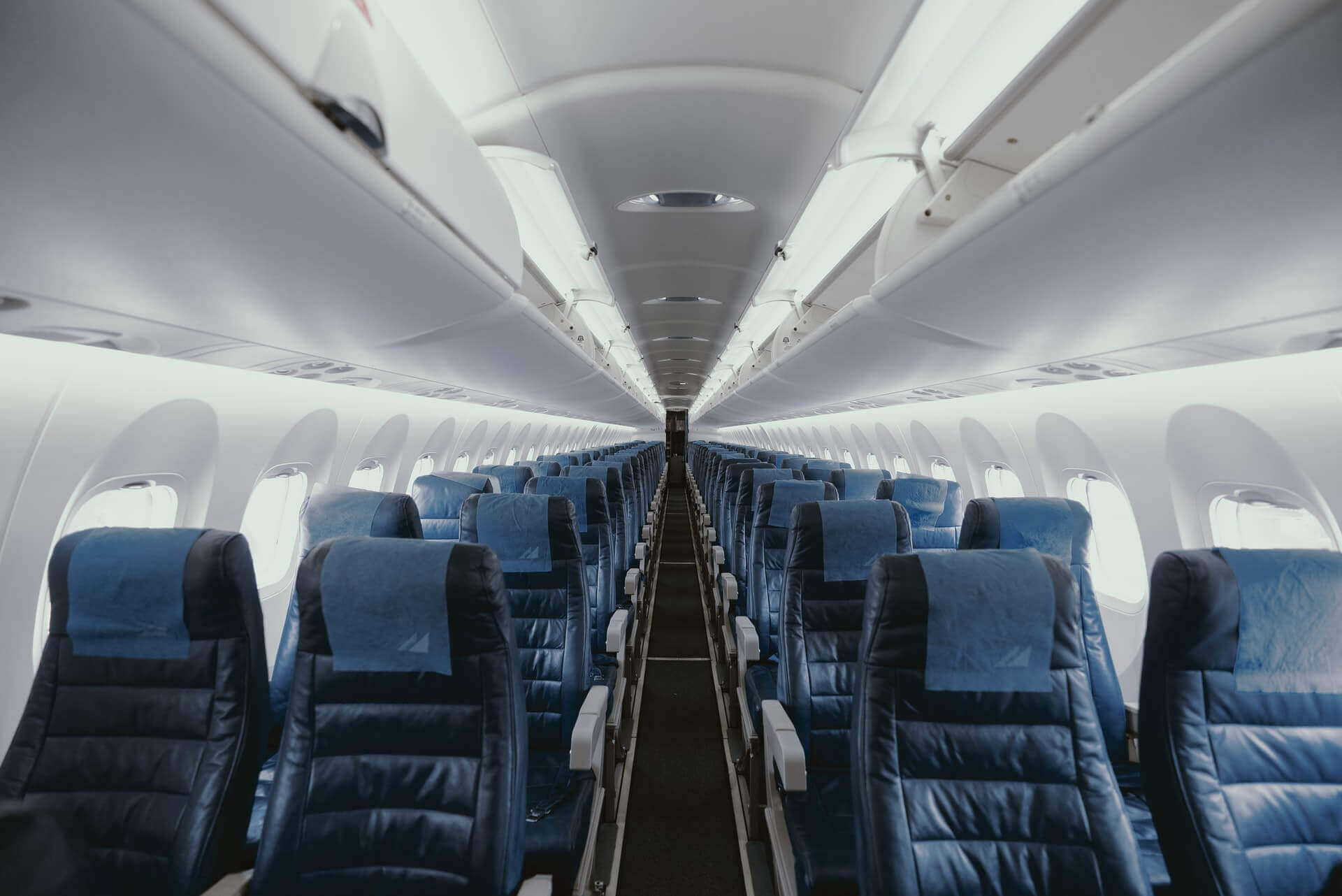
You may want to be more selective when booking your seat on a plane. Yes, you can get up easily. But not only will you rest less when your neighbor makes you get up, but you could also be exposed to more germs.
According to a 2008 investigation, the Center for Disease Control and Prevention (CDC) found that passengers sitting in the aisle seats of an airplane were more likely to be exposed to a virus outbreak. One likely reason is that people walking from one side of the aisle to the other, many of whom return from the bathroom, have a tendency to cling to the top of the aisle seat to lean on each other, which could spread germs.
4. Nervous flyer? Practice deep breathing
If you feel anxious on flights, a simple technique is to inhale through the nose and exhale through the mouth, counting up to five with each inhalation and exhalation.
Slowly deepen each breath, counting to 10 and continue until you feel your body relax. You can also try meditating. If you’re prone to losing sleep during an upcoming flight or have a history of panic attacks in the air, talk to you about taking anti-anxiety medications when you travel.
5. Get enough sleep

A 2015 study showed how critical sleep is when it comes to staying healthy, especially if you’re crossing time zones, as a disruption to a person’s circadian rhythm can compromise their immune system.
Try this: a week before your trip, gradually change your bedtime and waking time to match or at least approach your destination.
If that’s not possible, eat only a light meal during the flight, stay well hydrated, and avoid alcohol and caffeine. When you land, spend some time outdoors if you can; sun exposure can help you adapt to the new time zone.
6. Don’t forget a first aid kit
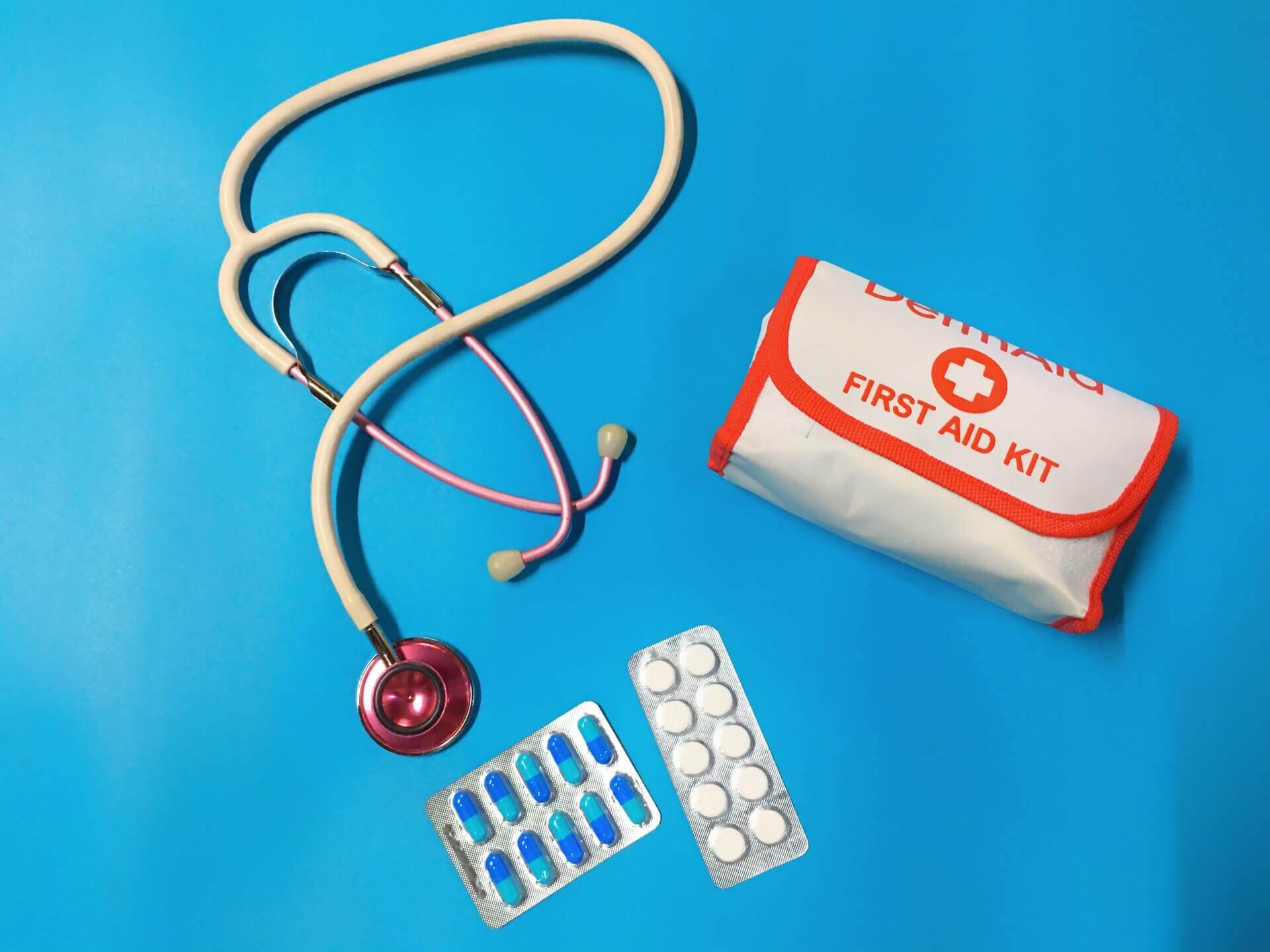
It’s helpful to pack some simple first aid supplies while traveling. Your kit should probably include:
- Acetaminophen or ibuprofen for pain or fever
- Insect repellent containing DEET
- Antibacterial wipes or gels
- Remedy against dizziness
- An antidiarrheal like Pepto-Bismol or Imodium
- Adhesive bandages
- Disinfectant and
- Antibiotic ointment like Neosporin.
And if you bring personal medications, pack them in your carry-on luggage instead of checked baggage, in case your bags get lost during transportation.
7. Hydrate during your vacation
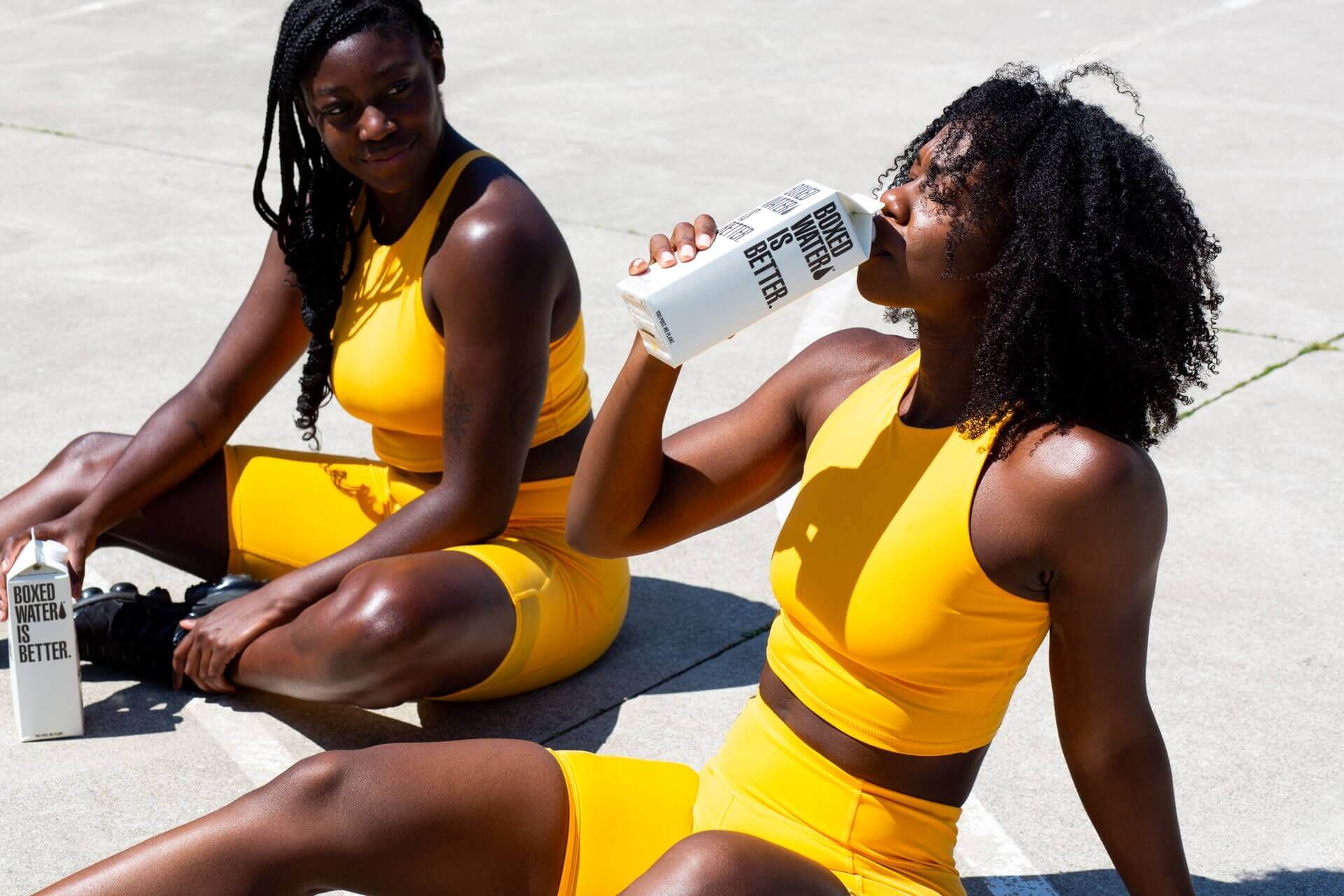
It’s easy to lose sight of how much water you’re actually drinking when sightseeing or enjoying poolside cocktails.Take a bottle of water wherever you go and start your day off well by drinking two glasses full of water when you wake up or with breakfast.
Alcohol dehydrates. After each glass of alcohol, drink a glass of water.
8. Observe what you eat and drink

If you’re traveling to a less developed country, make sure you eat properly prepared foods.For example: eat only meat that is well cooked and served hot on steam, and stay away from raw vegetables, dairy products sold by small independent suppliers, and any dairy products that have been left in the sun.
Also keep in mind that tap water may not be safe to drink, so bottled water is a safer bet. Ice cubes are often a hidden culprit, so avoid them too.
While you may want to try all the dishes and drinks during each meal during the holidays, especially at an all-inclusive resort, excess can lead to sluggishness and waste valuable vacation time.
So, have fun, but in moderation and think about “quality over quantity.”
9. Stay active
We, as we have already mentioned, are to make long walks in our destinations. But you may think that your ideal vacation should be to be lying on the beach all day, but you’ll actually feel better and eventually more rested if you incorporate physical activity into your day.
Whether that means taking advantage of a hotel’s gym, exploring local sights, walking or biking instead of taking a taxi, or even doing a few push-ups, jumps, or yoga in your room, it’s easy to add regular cardios while you’re away. Exercise boosts your immune system and releases endorphins that make you feel good.
10. Protect your skin
You don’t want a painful sunburn to spoil your trip. If you’re going to a destination with a high level of sunshine, pack a hat and umbrella and use sunscreen with a 30+ SPF to protect your skin from the sun’s UVA and UVB rays.
While sunburn will go away, the increased risk of skin cancer remains, so take this protection seriously.
11. Avoid insect bites
Insect bites are a pervasive evil on travel. Mosquitoes, ticks, fleas and some flies can transmit diseases such as malaria, yellow fever, Zika, dengue, chikungunya and Lyme disease, all of which can have serious consequences.
Use insect repellents with one of the following active ingredients: DEET, picaridin, IR3535, lemon eucalyptus oil (OLE), para-mentanodiol (PMD), or 2-undecanone.
12. Update your vaccinations
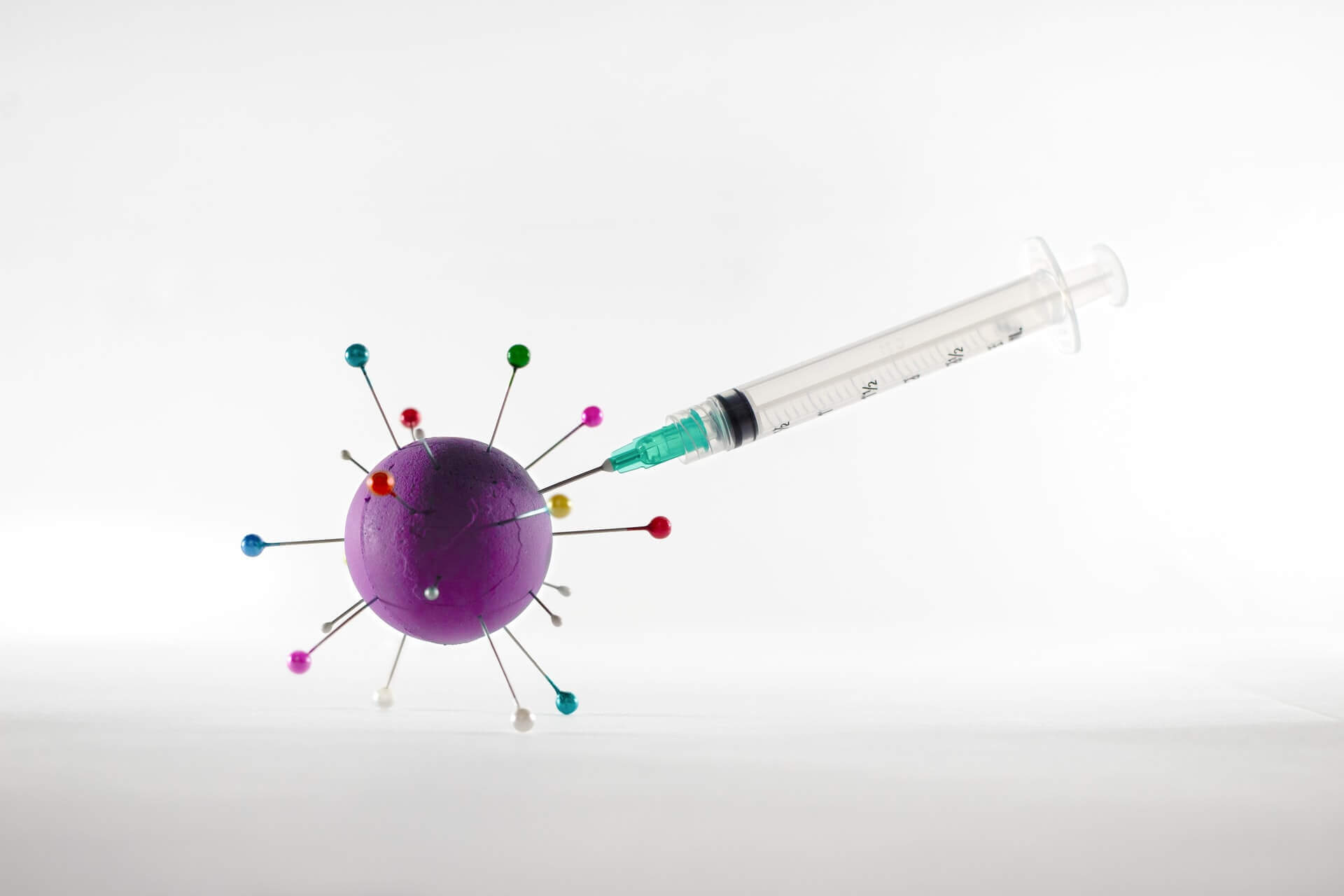
Need but to say, it is best to be vaccinated against Covid-19. But consider other vaccines. If you’re traveling to areas that present a risk of tropical disease, be sure to visit a travel medicine expert well in advance of your trip to receive the right vaccinations. Learn more here.
13. Be aware of your physical safety
- Follow local laws and customs.
- Limit alcohol intake.
- Wear protective gear during adventure activities, such as helmets when riding a bike or climbing.
- Be careful when swimming and during water activities.
- Do not swim in fresh water in areas under development or where sanitation is poor.
- Don’t walk barefoot. Consider wearing protective footwear when swimming in open water to avoid injuries that could lead to infection.Even on the beaches there can be animal waste that can be a source of human infections.
- Consider local weather conditions and forecasts.
- Watch out for big waves, strong tides and signs of rip currents.
14. Avoid animal bites
Do not pet or handle animals. Even kittens and puppies can transmit diseases.
If an animal bites, scrapes or dies you, wash the area immediately and thoroughly with soap and water.
Call a doctor to find out if you need medicines, a tetanus vaccine booster, or preventive rabies treatment.
15. Prevents sexually transmitted infections

Some people are presented with the opportunity (or actively seeking it) to meet new sexual partners during travel.
According to the CDC, one in five travelers say they’ve had sex with a new partner during a trip. It is essential to prevent sexually transmitted diseases. Travelers who have unprotected sex (whether vaginal, anal, or oral sex) are at risk for sexually transmitted diseases (STDs), such as HIV, chlamydia, syphilis, and gonorrhea.
Always use condoms with new sexual partners.
Conclusions
With the pandemic, more and more people are aware of their health and the prevention of disease and accidents. But we feel that there is still a need to educate. There are many facts that are not well known regarding this topic, that’s why we wrote this article, which we sincerely hope will be of help for your next adventure.
You are solely responsible for your health and safety and you have a responsibility to those around you as well.
Do you know of any actions we can take for our health during travel that we haven’t mentioned here?
Leave us your comments!
